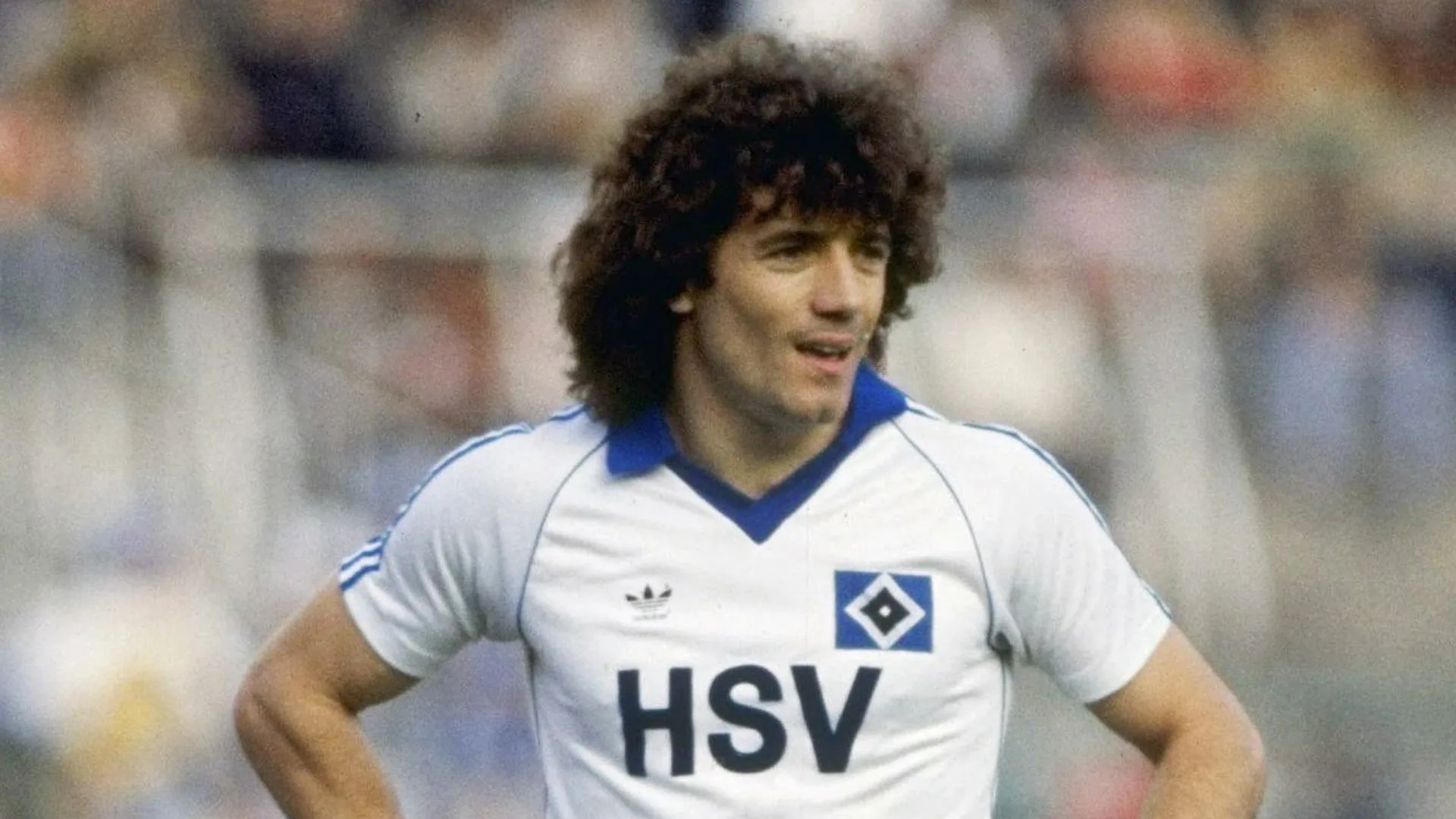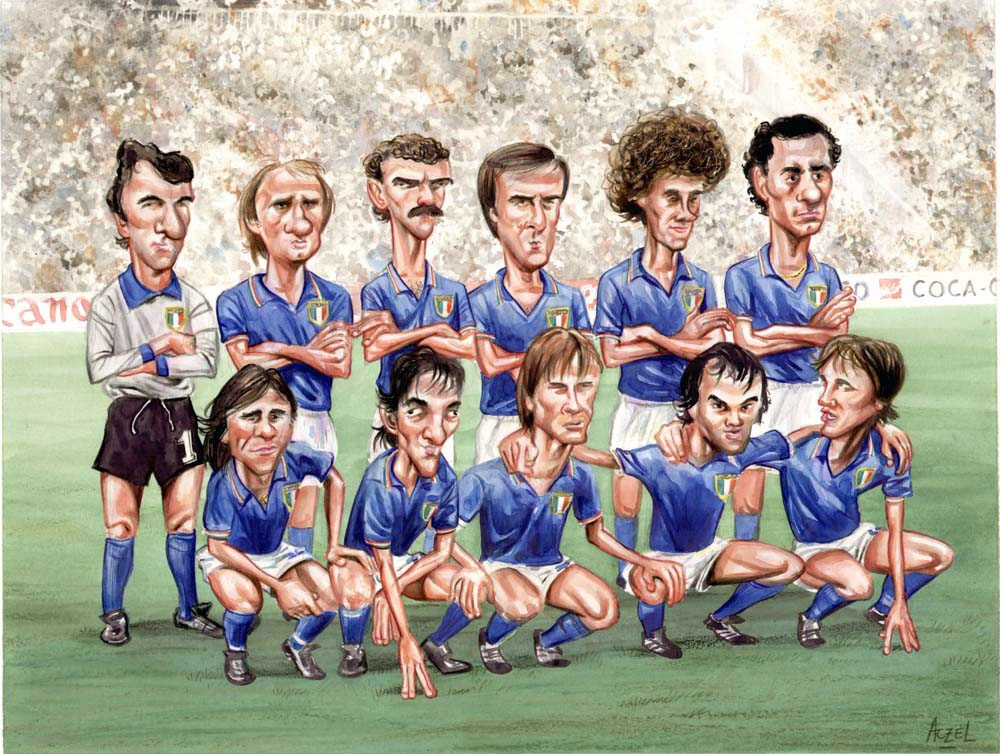
There is a view that the best referees make themselves as inconspicuous as possible. That view was never shared by Clive Thomas. He had to be the centre of attention at all times. Whether it was awarding dubious late penalties in FA Cup Semi-Finals. Or disallowing perfectly good goals for handball in Merseyside derbies Thomas was always the centre of attention. However, his greatest showman moment was in the 1978 World Cup. That was when Clive Thomas calls time on mighty Brazil in front of the watching world.
Dubious Decisions
Back in 1981, Tottenham and Wolverhampton Wanderers played an FA Cup semi-final at Hillsborough. Spurs were leading 2-1 and looked on course to book a trip to Wembley. That was until Clive Thomas intervened.
With time ticking away, Kenny Hibbitt ran into the Spurs penalty to be challenged by Hoddle. The midfielder fell to the floor and Thomas, to the astonishment of Spurs players and fans, pointed to the spot. Willie Carr stepped up to score and the game went to a reply, which Spurs won 3-0.

Clive Thomas Special
In 1977 Thomas took charge of another FA Cup semi-final. This time a frenetic Merseyside derby between Liverpool and Everton. However, on this occasion, it was Everton fans on the wrong end of a “Clive Thomas Special”.
Inexplicably he disallowed a perfectly good late winner for Everton – for handball, though he admitted that “in no way could I have seen the ball make contact with his hand or his arm”.– It later came to light he disallowed the goal because he wasn’t sure what else Bryan Hamilton might have used to divert it into the net. The footage clearly showed it had come off Hamilton’s hip and into the net.
In the 1981 League Cup final, he allowed a 117th-minute Liverpool winner even though the ball passed just over the prostrate and clearly offside Sammy Lee. West Ham players were apoplectic with Thomas dismissing his linesman’s raised flag without consultation.
Clive Thomas Calls Time
It was the 1978 World Cup Finals however where Clive Thomas would make his most infamous mark on football. In front of the world and on the biggest stage in the world game. The match in question was Brazil v Sweden.
This wasn’t the Brazil team of 1970. Lacking in the flair and finesse of the great teams of past Brazil. The 1978 team was one in transition. There was, however, the first glimpse of Zico and the beginnings of a team that would flourish four years later in Spain. For Thomas, he was now 41 and his prime years as an international referee.
The game wasn’t a world cup classic by any means. Sweden had taken the lead just before half-time through Thomas Sjöberg. However, Reinaldo had squared things up on the stroke of halftime to draw Brazil level at the break. The score remained 1-1 as the match neared its conclusion. Brazil, pushing for victory, won a corner, and then another, and, in the dying seconds, a third.
6 Seconds of Stoppage Time
Nelinho placed the ball ready to restart the game quickly. Frustratingly the linesman made him move the ball so that it was within the confines of the quadrant. Thomas checked his watch. Six seconds of stoppage time had been played.
Despite the fact the ball had not been in play for any of it, he thought it was almost over. Nelinho finally took the kick and, with the ball in the air, Thomas blew his whistle and turned for the tunnel. Behind him, a flick of Zico’s head saw the ball nestle into the back of the net. Cue obvious Brazilian celebrations.
Clive Thomas Calls Time On The Mighty Brazil
However, Brazil’s apparent joy was curtailed by a Welshman shaking his head, waving his arms and pointing at his watch. No goal. Clive Thomas walked from the pitch in the manner befitting of someone who was in charge, the centre of attention. His purposeful stride towards the tunnel indefatigably illustrated that he was in charge and the game was over. He decided it was time to end the game as the ball was in mid-air. It was not a goal. Final score 1-1.
Thomas revelled in the spotlight following the result. Prior to the tournament, all officials were asked to sign a document indicating they would not speak to the media or press. Thomas unsurprisingly refused to sign it. He couldn’t wait to speak to the world’s media.
Homeward Bound
“I saw the header, but I didn’t see the ball go into the net. I had turned away,” he said. “As far as I was concerned the game was over. The Brazilians have only themselves to blame. They should not have wasted so much time overtaking the corner.”
Thomas was the obvious favourite to referee the Final before his Brazilian indiscretion. Unfortunately, it was not to be and he was sent home just days later. He would never referee in a World Cup again.
This post may contain affiliate links which means I may receive a commission for any purchases made through these links. Learn more on our Privacy Policy page.
Related Posts
Kevin Keegan’s Bundesliga Ballet in Hamburg
Follow the journey of when Kevin Keegan went to Hamburg. Read as he conquered…
Iconic Moments in 1970s Football
Dive into the golden era with legendary footballers of the 1970s. Explore…



